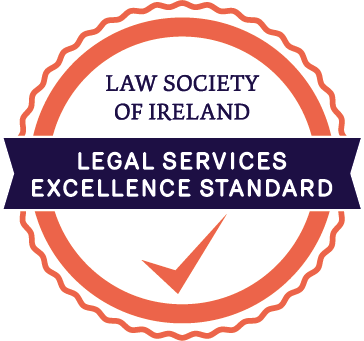When it comes to legal costs, it is important to understand the difference between party and party costs and solicitor and own client costs. This distinction was recently addressed in the High Court in proceedings involving Castle Haven Properties, where the Court had to decide how professional fees should be assessed.
In that case, the plaintiffs discontinued their action at an early stage. The defendants, having successfully defended the claim, applied for their costs. The Court confirmed that costs should follow the event and awarded the defendants their costs, but it also took the opportunity to clarify the two categories in language that non-lawyers could understand.
The Court’s explanation
The judge noted that legal terminology must be accessible to those who do not deal with litigation regularly. To make matters clearer, he suggested using:
- “Usual costs order” for party and party costs, and
- “Enhanced costs” for solicitor and own client costs.
What do these terms mean?
- Party and party costs: These are the standard legal costs that the losing side is normally required to pay. They cover the work reasonably necessary to move a case through the court process, such as preparing documents, issuing proceedings, and liaising with the opposing party’s solicitor. In personal injury cases, such costs are often paid by the defendant’s insurer.
- Solicitor and own client costs: These are additional professional fees that arise from the solicitor’s ongoing work with the client outside what the other side is obliged to pay for. They may include advice, meetings, phone calls, and addressing matters raised by the client that go beyond the court process itself. These costs are payable directly by the client, usually from any settlement or award received.
What clients should keep in mind
- Extra communication can add to your bill: While it is always important to raise questions and seek clarity, frequent or detailed queries may fall outside what the other side pays for, meaning those additional costs become your responsibility.
- Percentage charges are no longer allowed: In the past, some firms charged a percentage of the compensation (often around 10%) for solicitor and own client costs. This practice is now prohibited by the Legal Services Regulation Act 2015.
- Costs are carefully assessed: Professional legal costs accountants often review files to separate what is recoverable from the losing party and what remains payable by the client.
In summary
While the unsuccessful party will often be ordered to pay the bulk of your legal costs, you should be aware that there may still be additional solicitor and own client costs. Each case is different, and the best way to avoid surprises is to have a clear conversation with your solicitor at the outset about how costs may arise.
If you would like further advice on legal costs, or if you are concerned about what costs you might face in your own case, please do not hesitate to contact our office. We will be happy to talk you through the process in plain terms and ensure you are fully informed.


